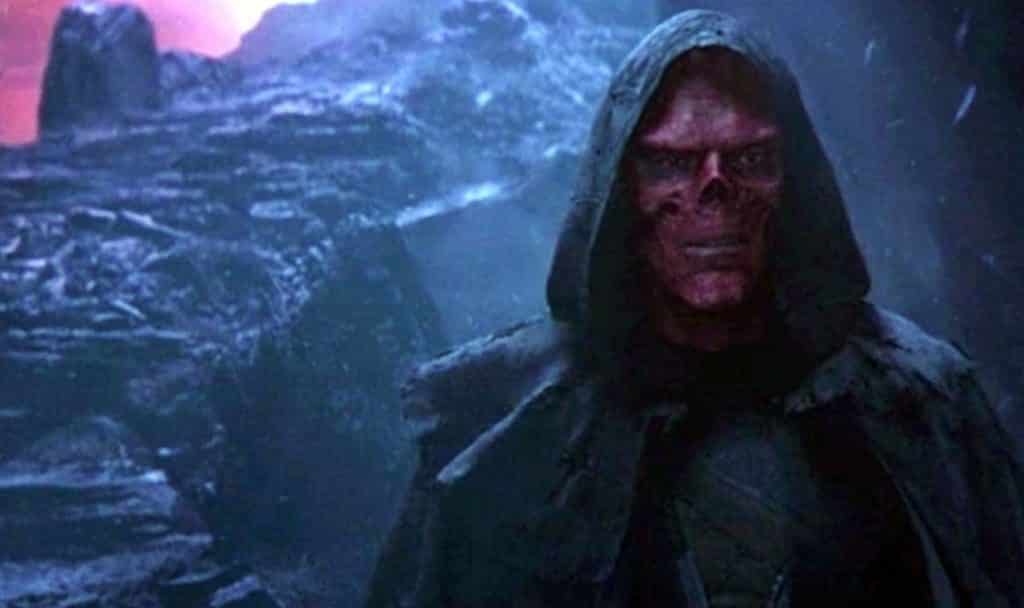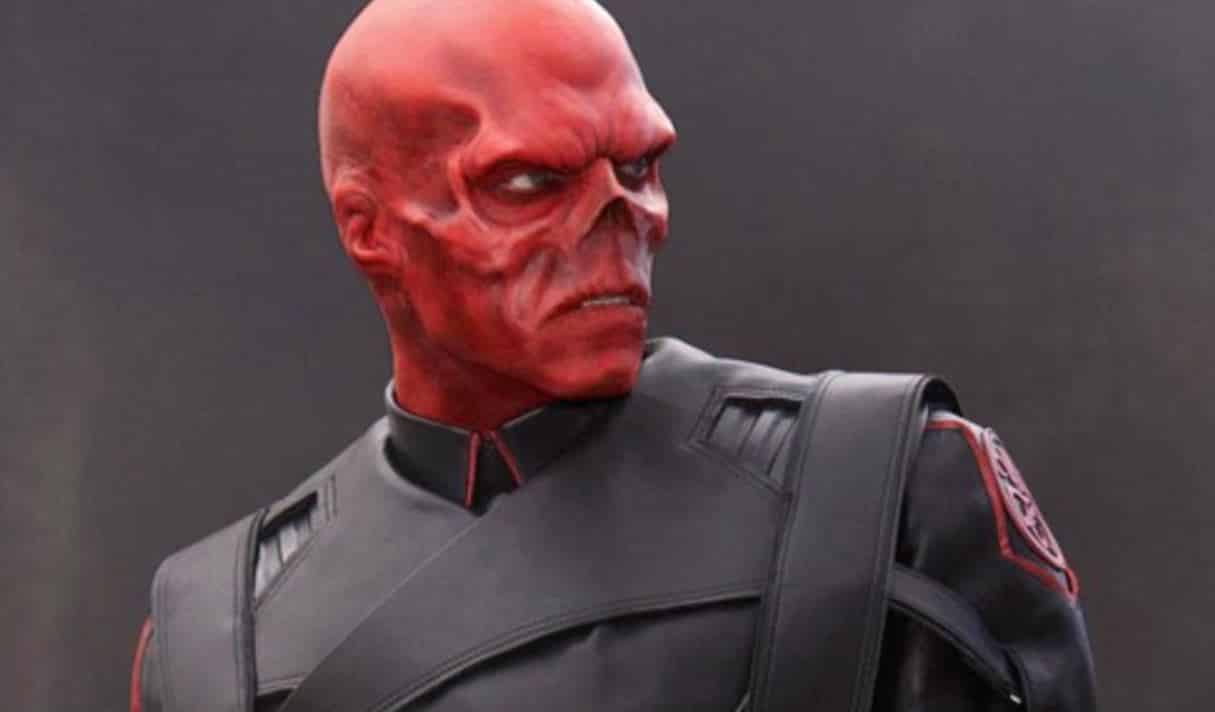Despite operating under intense scrutiny from the global media, and the unyielding gaze of an international fan community, Marvel somehow continually manages to keep their big MCU twists and cameos well under wraps. The only thing more surprising than the heart-rending conclusion of Avengers: Infinity War is the fact that literally nobody knew it was coming. And equally as shocking was the movie’s other surprise event, the return of missing super-villain Johann Schmidt – AKA The Red Skull), but just why did it take the company SEVEN years before they finally elected to bring him back?
When the Hugo Weaving incarnation of the character was seemingly dissolved by the Tesseract during the closing sequence of Captain America: The First Avenger, it was naturally assumed that he would make a big reappearance in the MCU at some point in the future. Given the uncontrollable power and potential of the ancient artifact, absolutely no-one thought that Schmidt had in fact been killed, with the prevailing opinion being he had been imprisoned/transported to another location when he had finally made physical contact with the Infinity Stone.
Well, it turns out that that’s exactly what happened, as depicted during the events of Infinity War. Ultimately seduced and corrupted by the power he had spent a lifetime seeking to control, Schmidt was reduced to little more than a wraith-like guardian of the Soul Stone on Vormir.
His inclusion heightens the hopelessness and tragedy of the decision that Thanos faces, and was exactly the right manner in which to re-introduce such an iconic original character to the Marvel Cinematic Universe. But things could have taken a very different path…
Prior to an aggressive rewrite by incoming director Joss Whedon, the first draft for the 2012 Avengers movie had sought to use a returning Red Skull as the film’s main villain, with Loki only acting in a supporting role to him. Original screenwriter Zak Penn worried that an over-reliance on the newer Asgardian characters could prove damaging to the MCU brand as the franchise moved forward, with older viewers turning away from what their perceived as childish creations.
Joss Whedon though, was having absolutely none of it and Red Skull was brutally written out, with Loki promoted to the position of Big Bad, and the spectre of Thanos lurking at the edges of proceedings. In a somewhat ironic subsequent twist to the tale, Whedon himself would also be edited out of the picture, following the lackluster reaction to Age Of Ultron.
So with his replacements, the Russo brothers having chosen to rely on HYDRA as the primary antagonists for the next two Captain America movies, was there ever a chance of seeing Schmidt in either The Winter Soldier or Civil War?
Put simply, no. Speaking recently to CinemaBlend, Joe Russo revealed a strong reluctance on of the half of the siblings to even entertain the thought of bringing Captain America’s ultimate nemesis back in either movie:
“No, actually it just didn’t fit the storytelling. Winter Soldier was clear that Hydra was the villain out of the gate. I mean, that was a commitment, and the story was that SHIELD kills Hydra, and I think we developed the [Robert] Redford character so that we had a personification of Hydra. In Civil War it was always going to be Zemo.”
The fact that Hugo Weaving had absolutely zero desire to reprise the role, in a situation eerily similar to his reluctant repeat performances as Megatron in the Transformers franchise, did little to make the case for the character’s return. And ultimately it was longtime Russo collaborators and writers Stephen McFeely and Christopher Markus that pushed for the opportunity to tie the fate of the absent villain in with the future of the Infinity Stones.
Talented impersonator Ross Marquand (The Walking Dead) was brought on board to successfully reproduce Weaving’s mannerisms, and the rest is cinematic history.
It remains to be seen where the effects of The Snap, and the events of Avengers 4 will leave Johann Schmidt, but it seems that Marquand’s successful depiction of the character has secured it a long and bright future for the next ten years of MCU movies. And I think we can all agree, that’s no bad thing…


